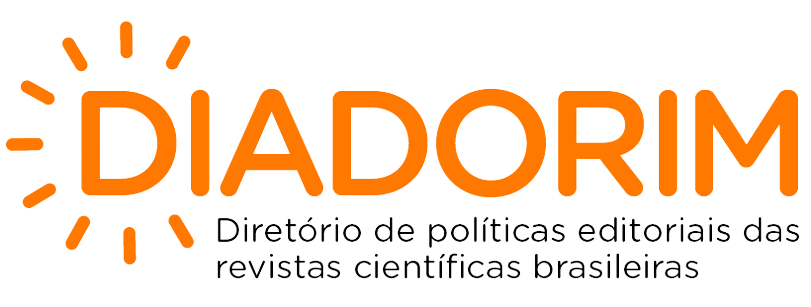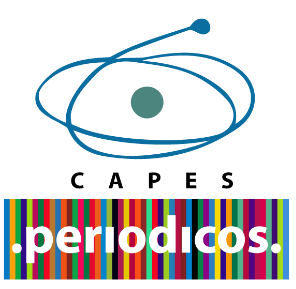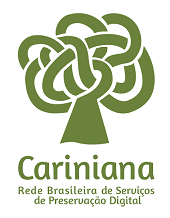Guidelines for seeking information in cyberspace
DOI:
https://doi.org/10.5433/2317-4390.2012v1n1/2p186Keywords:
Search engines, Search, Search strategiesAbstract
Introduction: Cyberspace is a space semantic / semiotic area, deterritorialized and in constant change and the Web is its main construct. The access to cyberspace and the Web is through the search engines that are information technologies that make the automatic indexing of the contents of these spaces, however, traditionally, using keywords or text descriptions to process the search, making it difficult to retrieving information according to the context sought by the reader. Multiple syntaxes are the machinic indexing great value; however, the semantic aspect is necessary to assign meaning to a query, that is, the search issue. However, developing search strategies facilitates retrieval of content adjusted to the context of the reader.Objective: To exemplify how the search engines are processing search (pragmatic).
Methodology: Documental research with a qualitative approach and a documental analysis were used as the method and technique.
Results: The results demonstrated that search engines selected to provide contextual search, but if search strategies are drawn up correctly.
Conclusion: We conclude that the reference librarian should know and study the interfaces of search engines for both to find content that is not indexed in databases, and to recommend to readers. The reference librarian should also use their practical ability to search for information to educate and train the reader in techniques and search strategies.
Downloads
References
CUNHA, Murilo Bastos da; CAVALCANTI, Cordélia Robalinho de Oliveira. Dicionário de biblioteconomia e arquivologia. Brasília: Briquet de Lemos, 2008.
FERRAREZI JUNIOR, Celso. Introdução à semântica de contextos e cenários: de langue à la vie. Campinas: Mercado de Letras, 2010.
FIGUEIREDO, Márcia Feijão de. Busca e validação da informação imagética na web. 2011. 108 f. Dissertação (Mestrado em Ciência da Informação) - Convênio Instituto Brasileiro de Informação em Ciência e Tecnologia e Universidade Federal do Rio de Janeiro, Rio de Janeiro.
GROGAN, D. A prática do serviço de referência. Brasília: Briquet de Lemos Livros, 2001.
ILARI, Rodolfo; GERALDI, João Wanderley. Semântica. 11. ed. São Paulo: Ática, 2006.
LEÃO, Lucia. O labirinto da hipermídia: arquitetura e navegação no ciberespaço. 3. ed. São Paulo: Iluminuras, 2005.
LEUF, Bo. The semantic web: crafting infrastructure for agency. Chichester: John Wiley & Sons, 2006.
LEVENE, Mark. An introduction to search engines and web navigation. New Jersey: John Wiley & Sons, 2010.
LÉVY, Pierre. As tecnologias da inteligência. Rio de Janeiro: Ed. 34, 1997.
LUZ GARCÍA, Irma; PORTUGAL, Mercedes. Servicio de referencia: uma propuesta integradora. Buenos Aires: Alfagrama, 2008.
MONTEIRO, Silvana Drumond. O ciberespaço e os mecanismos de busca: novas máquinas semióticas. Ciência da Informação, Brasília, v. 35, n. 1, p. 31-8, jan./abr. 2006.
SALAZAR, Idoia. Las profundidades de Internet: accede a la información que los buscadores no encuentran y descubre el futuro inteligente de la Red. Somonte: Edicciones Trea, 2005.
SANTAELLA, Lucia. Linguagens líquidas na era da mobilidade. 2. ed. São Paulo: Paulus, 2011a.
SANTAELLA, Lucia. Navegar no ciberespaço: o perfil do leitor cognitivo. 4. ed. São Paulo: Paulus, 2011b.
SARACEVIC, Tefko et al. A study of information seeking and retrieving. I. Background and methodology. Journal of American Society for Information Science, Washington, v. 39, n. 3, p. 161-176, 1988.
SARACEVIC, Tefko; KANTOR, Paul. A study of information seeking and retrieving. II. Users, questions, and effectiveness. Journal of American Society for Information Science, Washington, v. 39, n. 3, p. 177-196, 1988a.
SARACEVIC, Tefko; KANTOR, Paul. A study of information seeking and retrieving. III. Searchers, searches, and overlap. Journal of American Society for Information Science, Washington, v. 39, n. 3, p. 197-216, 1988b.
TORRES POMBERT, Ania. El uso de los buscadores en Internet. ACIMED, Habana, v. 11, n. 3, mayo/jun. 2003.
Downloads
Published
How to Cite
Issue
Section
License
Copyright (c) 2012 Informação@Profissões

This work is licensed under a Creative Commons Attribution 4.0 International License.
A revista se reserva o direito de efetuar, nos originais, alterações de ordem normativa, ortográfica e gramatical, com vistas a manter o padrão culto da língua e a credibilidade do veículo. Respeitará, no entanto, o estilo de escrever dos autores. Alterações, correções ou sugestões de ordem conceitual serão encaminhadas aos autores, quando necessário.
O conteúdo dos textos e a citação e uso de imagens submetidas são de inteira responsabilidade dos autores.
Os trabalhos publicados passam a ser propriedade da revista Informação& Profissões, ficando sua reimpressão total ou parcial sujeita a autorização expressa da revista. Em todas as citações posteriores, deverá ser consignada a fonte original de publicação, no caso a Informação&Profissões.












